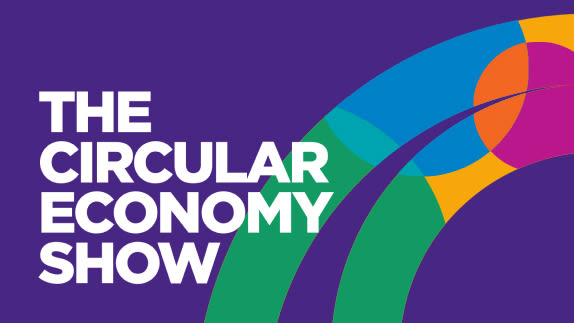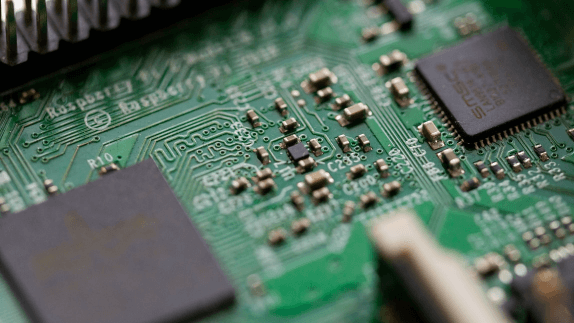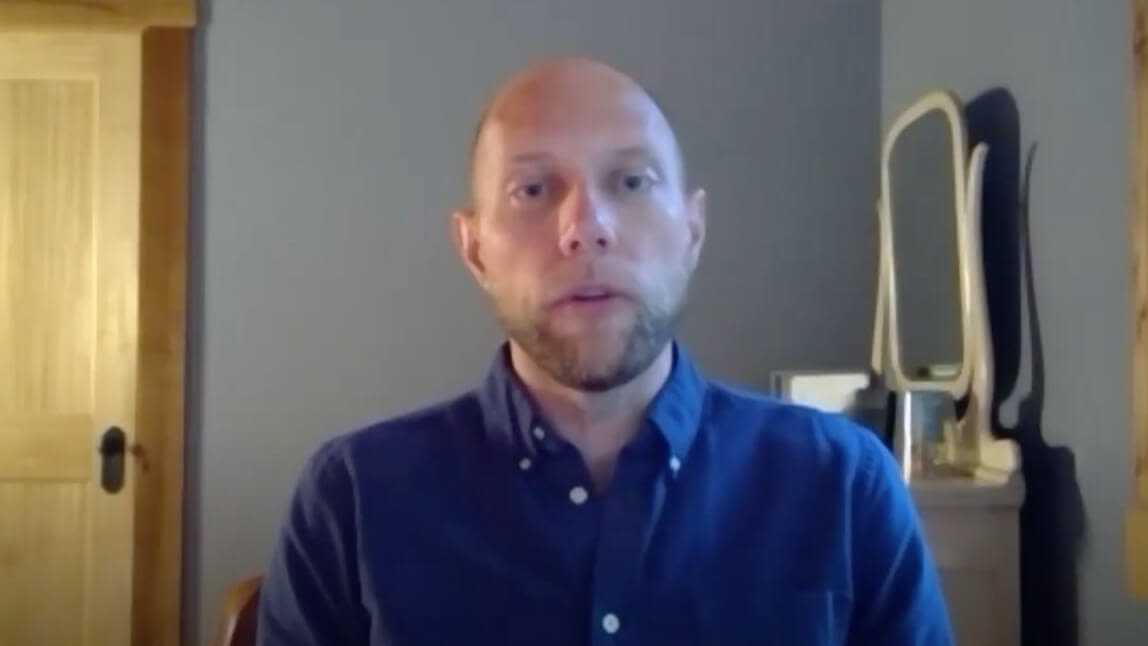In this week’s episode, Jess Mevel travels to Bordeaux, France, to learn how Back Market is working to make refurbished tech better than new.
Back Market is an online marketplace founded in 2014 who are on a mission to help make refurbished electronic products more reliable, affordable, and better than new.
Listen on Spotify, Apple Podcasts, or wherever you get your podcast.
Transcript
Jess Mével 0:03
Smartphones have become an essential part of daily life. They are radically changing the way we work, how we spend our leisure time, and, of course, how we communicate with each other. But did you know that in Europe, almost a third are no longer in use? I’m your host, Jess, and in this episode of the Circular Economy Show Podcast, I went to Bordeaux to meet Back Market, an online marketplace founded in 2014, who are on a mission to help make refurbished electronic products more reliable, affordable, and better than new. Later, we’ll uncover more about how they became one of France’s most valuable startups, but first, let's hear from Camille Richard, Back Market’s Head of Sustainability, about how electronic waste has become a growing problem, aggravated by planned obsolescence.
Camille Richard 0:52
Today, digital represents 4% of our carbon emissions globally. To give you an idea, the plane business is around 3%. So it's even bigger. And 70% of this impact is due to the manufacturing of devices. So changing our consumption habits can have very quickly and very, like a strongly a positive impact on the planet. And for smartphones, you actually avoid seventy seven kilogrammes of CO2 per refurbished smartphone bought instead of a new one. Like, to give you an idea like... It's like... Manufacturing a new smartphone is around 84 kilogrammes of CO2 and refurbishing one in seven kilogrammes. So you have like a huge, huge difference.
Jess Mével 1:49
So, as Camille explains, the manufacturing of our machines and devices has a huge impact on the environment, but the end-of-life disposal of these devices also poses a major problem. Addressing their planned obsolescence is an important part of this, says Camille.
Camille Richard 2:05
So we are trying to act to fight a bit against this planned obsolescence. We work with the main French Association on it, called Hope is like Stop Planned Obsolescence to raise awareness on this, to try to also like push a bit, lawmakers to make them understand why it is so important that we extend the lifespan of the devices we use on a day to day life.
Jess Mével 2:36
This kind of policy work is now underway in France. But Camille says there's still a lot of work to do.
Camille Richard 2:42
France is quite advanced on this topic. Actually, we are the only country that recognised on the legal plan, the planned obsolescence per se, so we have... it's actually forbidden in France. We also have, like a law obligating technology constructors to ease the reparability and the availability of spare parts for the repair, but it's not enough applied today. So we are working on to make sure that clause is actually used and I expect by all. But in fact, we have also something called the repairability index, which is more for the customer. So when you are buying an electronic stuff in France, you have actually this reparability index telling you is this device repairable or is going to be very difficult to to have some repairs on it if it actually has a failure? In Europe, it's a bit more, it's a bit less advanced, there are a lot of discussions around it. On one hand, as a recognition of consumer rights because as a consumer, I need to have access to repair and to make sure that they are going to buy something that can work like long enough. And on the other level of fight on this is regarding equal conception. So we are trying to convince lawmakers to make laws that actually obligates the constructor to make their devices actually repairable in an easy way for everybody.
Jess Mével 4:27
So we're making it more difficult now for people to create planned obsolescence?
Camille Richard 4:32
Supposedly, yes, what we are trying to do, but the idea is not to make them... their life difficult. The idea is to make sure that we are going to use the devices longer... as long as possible. And today, it's so far is not in the interests of the constructors to people keeping their device for a very long time because they are spending less so... but there are like many things that we are trying to do to work with them, to make them understand that it's also in their interest. For instance, like, if you are like a device maker, electronic device maker, you also sell like services and software. So it's interesting for people to have access to these devices so they can use your software. So we are working on this, it's not a... there's a lot to do still, there is a lot to do to make the existing law for instance, in France as it actually exists, but it is in the interest of the planet and the customer. So we are, we are very committed to this.
Jess Mével 5:34
To find out more about Back Market’s vision, I spoke to the company’s CEO and co-founder, Thibaud Hug de Larauze.
Thibaud Hug de Larauze 5:43
Back Market is a marketplace dedicated to the sales of refurbished products. It's been created eight years ago. It's operating in 17 countries, so in Europe, in the US , and also in Asia now, for the past two years. The idea behind Back Market is to scale the circular economy around tech product, give an alternative to people when they want to consume a tech product to actually not buy a new product and buy a refurbished or used product.
Jess Mével 6:16
Thibaud spotted the opportunity around resale whilst on a site visit to a refurbishment facility.
Thibaud Hug de Larauze 6:21
Actually, the idea came from when I was working... for my... during my first job and actually met, I was an account managers and and I was taking care of multiple accounts, some were selling fashion, some were sitting wine, and some were refurbishing iPhones. And so, I came to visit their facility in the SouthWest of France. And I realised, you know, what they were doing, they were creating so much value for me it was like, I was like a five-year-old kid in Disneyland, you kno? It was like: "what? you literally doing that?". So opening the devices, replacing the components put it back together. So visually speaking, it was super striking. And then, I had some time to digest that I was like: "This is crazy the value they're adding".
Jess Mével 7:18
So with Back Market’s ambitions to encourage potential customers to shun the latest smartphone release and instead opt for a refurbished product, I asked the company’s Vice President of Marketing, Thomas Poulain, about the challenges facing the refurbished tech market.
Thomas Poulain 7:36
We're playing against big household brands, you know, the big tech guys, Samsung, the Google, the Apple of this world, and they have massive budgets. And they essentially speak to, you know, consumers when consumer intent for new tech is really high. So that's back to school, at Christmas, or, you know, the sales seasons, depending on the markets. And we have to play them because that's when marketing is effective, right? Consumers are looking for products, way to create awareness and consideration for these products, artists for this new way of consuming, it's just a result of 30,40, 50 years of creating a model of, you know, establishing a new pattern of buying new every year and that you absolutely need this new phone with that extra tenth camera, and this new form factor, right? This is just psychological work in play, you don't need that. And this is a moment where we have immense kind of creative territory to explore. And we have a lot of fun with that.
Jess Mével 8:38
Marketing plays a vital role in getting customers familiar with the concept of Back Market and its offering. Thomas tells me about a recent campaign in London.
Thomas Poulain 8:47
The impact of the marketing campaign we did in UK and more precisely, in London area was phenomenal. So we tried to balance our conviction, which is we need to invest in the UK market. It's the largest addressable market in Europe. It's the most digital of the... the most digital market in the world. Markets in top five, it's more digital than the US for example, right? So it's it's a critical market, it's tripled four times the size of France, double the size of Germany. So it's a no brainer from a business perspective for us. I do think that there is a bit of a unique blend, where the market, I think, understands what the brand stands for, that quirkiness I was mentioning and talking about, that weirdness, you know, attitude in a sense, as well as you know, a very rational approach to retail understanding that, yes, these products are of high quality and they are more affordable. So that translated. We saw a big impact. Our levels of awareness in London are continuing to rise. But it's not just one kind of coup, in one activation, we're committing in the long run. And as, as a matter of fact, the UK is probably the market where we invested the most, from a marketing perspective, in the, in the early stages of the of the market. You know, as any kind of larger marketing organisation, our life would be so much easier if we, if we could just define one big brand platform campaign, messaging hierarchy, and then roll it out with just a simple transition across the market. Some do that, it's very difficult. And we've kind of proven to ourselves even if it's evidence, it's, it's, it's unnecessary work, to not only translate and localise, but to really grasp the full cultural aspects, sometimes difference that exists in every single market, while keeping, you know, a strong focus on what our core message is. So it's difficult. It's, you know, it's a job, we need talents for that. But when we push that little extra effort, and really, really focus on understanding the local consumer, or they're staying for, what's their relationship to tech in the first place, what's their relationship is to the refurbished industry category, if there is one. And understanding, you know, the cultural traits, the moments that matter, once we do that extra push, then we have a messaging campaign that connects much better and we see results in terms of business.
Jess Mével 11:36
So how does Back Market convince its customers that a refurbished phone is a better option? Chief Exec Thibaud says it’s about providing reassurance for customers that they’re buying a quality product.
Thibaud Hug de Larauze 11:48
So the gap that was existing, before we created Back Market from me became clearer, the more we were thinking about the opportunity, the clearer it became. I call it the "trust gap". So if you're a consumer, you're looking for a tech product, you had two options literally before, the first one is, you go on Amazon, or classic retailer or you buy a new product, so you pay the full price tag, but you go all... you get all the trust, the reinsurance it's, it's guaranteed, if something is broken, doesn't work, then you're covered. So you have a sense of peacefulness when you buy it. And, or you decide to go buy a used product. So you might find some on Craigslist or eBay. And it's actually all the way around, you save a lot of money versus the new product. But the safety net to save cords, there is not many warranties around that actually there, there were none
Jess Mével 12:54
Head of Sustainability, Camille, thinks that it’s this trust that sets Back Market apart.
Camille Richard 12:59
And so bad market actually created the condition of the trust between the customer and their eye physicians, because it was a very heterogeneous market, very complicated to understand for the customer, because you have like very small workshop with like six people repairing smartphone or computers and you have like big factory with 2000 people working in. So for a customer is a bit complicated to understand.
Jess Mével 13:23
Thibaud agrees.
Thibaud Hug de Larauze 13:24
And so literally, the trust gap is the thing that's missing in the middle of the new world and the used world and this is where we came to create Back Market. Is to say, refurbished is the best world of both worlds, you're saving a lot of money from new, but you also have all the insurance that you don't get on the used sides of things.
Jess Mével 13:46
For Camille, creating a user experience where customers feel reassured in their purchases helps to address this trust gap.
Camille Richard 13:53
We want to reproduce the same kind of customer experience. Because people... what we want to do is to make responsible consumption, not painful. We don't want people to think about consuming responsibly, like sustainably as a sacrifice. So we have to reproduce the same kind of conditions that we are... that big constructors are proposing with you. So we have to be very, very strong in Customer Care, we have to be very strong in quality check. We have to be very strong in marketing as well, because we want people to understand what we are talking about. And so yes, we had to invest a lot in this as well. And it's starting to work so we are very happy about it.
Jess Mével 14:36
The result of this is that customers shouldn’t feel like it’s a lot of effort to change their buying habits, says Thibaud.
Thibaud Hug de Larauze 14:43
Ultimately you're not asking people to to compromise too much on the precedent of the way they are used to purchase. You're asking for some efforts. You know, you're not going to Apple store, you're not going to Amazon anymore, it just, you know, consider that option. So it's already a switch. So in my mind, it's like asking for the least effort as possible in order to change the overall picture in the end.
Jess Mével 15:16
So looking to the future, how can Back Market continue to scale? Camille believes that communication is an important aspect of the behavioural change that the business is part of.
Camille Richard 15:27
It's more about how we educate people around the true impact of tech, to make them understand that refurbished circular tech is a concrete solution to fight a very problematic issue on the environment. In my case, for instance, I was buying on Back Market way before I was working with them. Because I, for a long time, I knew that I couldn't buy new anymore, like regarding tech devices, because it was a really big impact on the environment, but I didn't know who to trust with because it's, it's cheaper than new but it's still like, some money, you know? Like, it's not, like free. When I arrived at Back Markets three years ago, in the US, likeit was only 5% of people were actually coming to Back Market to buy because of impact, today's are 25%. So the share of customer that are actually coming for impact in the US were multiplied by five in two years. So it's... there is the chain, we can feel the chain growing. And now more and more, we understand that customer are starting to look a bit more into the impact of their consumption, their purchases. And it's actually it's a growing trend everywhere.
Jess Mével 16:48
For co-founder Thibaud, the goal is for Back Market’s operations to become more circular, with customers keeping their products moving through the marketplace.
Thibaud Hug de Larauze 16:57
I don't really spend too much time naturally looking back. I'm naturally more obsessed about, you know, the future and about everything that's left to be built, if we really want to scale that and, you know, transform the economy as it is today as something different and maybe more sustainable. So I don't have many moments where I think about that. The only time when you do have time to think about that is actually when you have people like you know, joining the company, like eight years ago or someone who are leaving. So it's always good moment, you know, during farewell parties where you're like, Oh, you remember that. And, and yeah, that's more on those moments where you realise like, we were super scrappy. But naturally, I don't think about that, that much. So you can expect us to keep trying as hard as we can to, you know, amplify the acceleration of transforming the linear economy of tech products to circular economy. And if Back Market is successful tomorrow, it means that you know, most of the things that you're going to buy, you're going to buy them through Back Market when it comes to your tech product. Then pretty much like 100% of the time when you're purchasing a tech product, you also trading in whatever you have, and you're not using it anymore so you don't keep it in your drawer. Because circular economy is not just about selling refurbished. It's also about gathering the product from the people, get them back in the line some of the refurbishment and will happen most likely over 25 countries at least.
Jess Mével 18:46
It was so fun to go to Bordeaux and head behind the scenes at Back Market. With our ever-increasing reliance on technology I can’t wait to see how they continue to expand globally, selling one refurbished device at a time. Thanks for listening to this episode of The Circular Economy Show Podcast. If you enjoyed it, please leave us a review, or if you’re listening on Spotify, drop us a comment in the Q&A section, we’d love to hear from you. Thanks to the Back Market team for contributing to this episode, which is brought to you by the Ellen MacArthur Foundation, and produced by Skinny Mammoth Media. See you next time!




